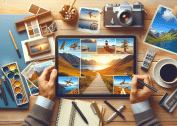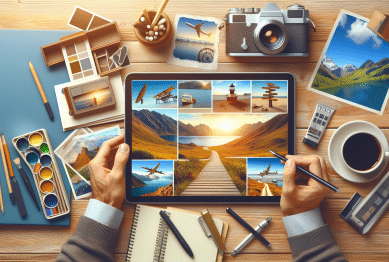Solo travel adventures transform more than just schedules—they reshape perspectives, confidence, and even personal priorities. Explore how traveling alone can lead to growth, memorable encounters, heightened safety awareness, and the discovery of freedom on every continent.
Solo Travel Builds Lasting Confidence
Traveling alone provides an open invitation to step far beyond comfort zones. On solo trips, every itinerary change, new food, and unfamiliar street becomes a lesson in decision-making and resourcefulness. Choosing where to dine or how to navigate public transportation in a new city can feel daunting at first. With every hurdle cleared, however, a steady sense of self-assurance grows. Many experienced travelers say solo adventures teach skills rarely gained in day-to-day routines. Even something as small as finding directions builds confidence. This increasing independence can influence choices long after returning home. A solo travel lifestyle lays a foundation for trusting one’s instincts and standing strong in other areas of life.
Solo journeys create countless opportunities where travelers must advocate for themselves. Unlike group travel, there’s no one to lean on in moments of doubt or confusion. This reliance on one’s judgment sharpens critical thinking and problem-solving. Travelers start noticing their comfort with negotiating taxi fares, communicating in foreign languages, and organizing day trips alone. Confidence isn’t just an inner feeling—it becomes visible in posture, the way people interact with locals, and how willing they are to explore unfamiliar destinations. Studies show that these solo experiences often have a ripple effect that enhances future decision-making and personal resilience. https://www.apa.org/monitor/2018/07-08/mindful-travel
For many solo travelers, confidence extends beyond logistics. Adventures bring spontaneous encounters—perhaps with new friends, chefs, or artists—that ask individuals to connect and communicate. Each small success, whether making a friend or finding a hidden landmark, further shows how capable they can be. The more often travelers venture out alone, the more their comfort with risk and uncertainty grows. This shift can even alter career outlooks or spark creative pursuits. Over time, solo travel can become a favorite self-development tool, building a mindset prepared for life’s challenges.
Solo Adventures Bring Deep Personal Growth
Setting out alone often creates space for meaningful self-discovery. Without familiar expectations or group agendas, travelers can get closer to their own interests and desires. Many find solo trips to be times of introspection—a chance to reflect, write, or simply observe new surroundings. Far from home, habits loosen, making it easier to try new activities or adopt healthier routines. The pace is fully self-directed, which means wandering a city for hours or spending a morning reading in a park can feel deeply satisfying. Over several days, subtle changes in perspective start to shape new priorities and long-term aspirations.
Personal growth is also fueled by overcoming small daily challenges. Whether it’s navigating language barriers, managing a strict budget, or learning to stay calm when plans change, each experience adds a new layer of resilience. The unfamiliar setting sharpens problem-solving skills and reveals hidden strengths. Some solo travelers notice a stronger sense of gratitude and empathy, developed through encounters with locals or fellow adventurers from diverse backgrounds. This openness often follows travelers home, strengthening relationships and broadening viewpoints well after the trip ends. https://www.psychologytoday.com/us/blog/adventures-in-divergent-thinking/201409/lessons-solo-travel
The absence of outside pressure makes it easier to reflect on what’s most important. Solo travel can become a gentle reset, creating mental room to plan or step back from stressful routines. Many travelers return home with new hobbies, a deeper appreciation for their own culture, or even a renewed commitment to wellness practices discovered abroad. Ultimately, experiences on the road enable profound and lasting shifts in how travelers see themselves, their goals, and the world around them.
Embracing the Freedom of Flexible Itineraries
One of the greatest rewards of traveling solo is freedom of choice every single day. Want to sleep in, catch a sunrise, or spontaneously add a museum stop? There’s no need to consult anyone else. Flexible itineraries allow solo travelers to adjust plans on a whim—spending extra time in beloved towns or skipping sights that don’t appeal. This autonomy often leads to delightfully unexpected discoveries, as travelers follow curiosity rather than fixed schedules. With no group dynamic to manage, personal travel desires and energy levels can fully steer the day’s activities.
The ability to pivot plans easily reduces travel-related stress. If rain ruins a beach day, there’s complete freedom to explore a new coffee shop, visit a gallery, or relax with a book. This flexibility does more than just affect what to see and do; it transforms how travelers respond to the world around them. Many solo adventurers find they’re more open to local recommendations, spontaneous encounters, and off-the-beaten-path experiences. Flexibility enhances the sense of adventure and unlocks doors to hidden gems outside the guidebook circuit. https://www.lonelyplanet.com/articles/reasons-to-travel-alone
As solo journeys unfold, travelers often realize that they can adjust course with ease, whether exploring a bustling city, remote village, or scenic backroad. This ability to embrace uncertainty and adapt swiftly becomes a valuable skill transferable to work and daily life. The joy of flexible itineraries isn’t just about freedom—it’s about learning to trust personal intuition and let go of the need for tight control. Every detour can lead to powerful memories and new perspectives.
Safety Awareness and Practical Tips for Solo Explorers
Vigilance is key when traveling alone, and solo trips naturally heighten situational awareness. Many solo travelers quickly learn to assess environments, trust their instincts, and minimize risks. This means keeping valuables secure, staying alert in crowded places, and researching safe neighborhoods for accommodations. Sharing itineraries with trusted friends or family members back home can also add peace of mind. Useful travel apps now offer features for location sharing and emergency contacts, making it easier to stay connected even abroad.
Safety involves more than just avoiding risks; it comes from practical planning. Solo travelers who schedule arrivals during daylight, choose reputable transportation, and stay informed about local customs tend to have smoother experiences. Understanding basic phrases in the destination’s language can help in unexpected situations. Travel insurance tailored for solo trips provides another level of reassurance. Preparation is empowering—and allows more headspace to enjoy each destination’s beauty and culture. https://www.gov.uk/guidance/foreign-travel-checklist
Many solo travelers join small-group walking tours or meet-ups to explore safely while connecting with others. Online communities now make it easier to learn from the experiences of solo explorers everywhere, from safety tips to honest reviews of hostels and attractions. Empowered by preparation, solo travelers report feeling not just safer, but also more adaptable and aware of their surroundings in every setting.
Meaningful Encounters and Global Friendships
Traveling solo opens the door to serendipitous meetings in airports, hostels, and local cafés. As a party of one, individuals are more approachable—whether joining a group hike, asking for directions, or taking part in a festival. These interactions can lead to friendships, cultural exchanges, and even invitations to local celebrations. Honest conversation and curiosity foster authentic bonds, made possible by the unique openness of the solo traveler mindset.
Sometimes, the most cherished memories stem from these spontaneous connections. A solo trekker might be invited to join a home-cooked meal, help with a community project, or explore a market with newfound friends. Often, such encounters lead to long-term relationships and a greater appreciation for global diversity. Many travelers say that being alone gives them the courage to strike up conversations they might have avoided in groups. This ability to connect becomes a skill that enriches both travel and life back home. https://www.travel.state.gov/content/travel/en/international-travel/before-you-go/travelers-checklist.html
Connecting globally has never been easier thanks to digital platforms linking travelers before and during their journeys. Social groups, language exchanges, and meet-up apps allow even the shyest explorers to create community wherever they roam. As trust and openness build, travelers often return home with not just souvenirs but global friendships—lasting connections that fuel continued curiosity and learning about the world.
The Transformative Joy of Travel Reflections
Reflection is a core part of solo travel’s impact. Many travelers keep journals, blogs, or even photo diaries to chronicle their experiences. This act of reflection deepens gratitude, strengthens recollection, and helps integrate insights gained on the road. Revisiting these personal stories later often reignites inspiration and cements the lessons learned through travel. Solo journals have even sparked published books, podcasts, or community travel talks—sharing inspiration with wider audiences.
Taking time to pause and reflect during a journey can reveal patterns, shifted mindsets, and growing self-awareness. Some travelers choose to meditate, draw, or record audio notes during their trips. Others use reflection as a creative spark, painting landscapes, or capturing moments in poetry. These inward moments anchor travelers, making sense of the whirlwind of new experiences and emotions that solo trips can bring. https://journals.sagepub.com/doi/10.1177/1356766716684474
Reflection circles back to the core of why solo travel changes people. Through honest self-dialogue and tangible mementos, the traveler finds deeper meaning in each memory. These lessons continue to motivate new adventures, personal projects, and life changes inspired by time spent alone with the world—and with oneself.
References
1. American Psychological Association. (2018). Mindful travel. Retrieved from https://www.apa.org/monitor/2018/07-08/mindful-travel
2. Psychology Today. (2014). Lessons from solo travel. Retrieved from https://www.psychologytoday.com/us/blog/adventures-in-divergent-thinking/201409/lessons-solo-travel
3. Lonely Planet. (n.d.). Eight great reasons to travel alone. Retrieved from https://www.lonelyplanet.com/articles/reasons-to-travel-alone
4. GOV.UK. (n.d.). Foreign travel checklist. Retrieved from https://www.gov.uk/guidance/foreign-travel-checklist
5. U.S. Department of State. (n.d.). Traveler’s Checklist. Retrieved from https://www.travel.state.gov/content/travel/en/international-travel/before-you-go/travelers-checklist.html
6. Wilson, E., & Harris, C. (2016). Meaningful travel: Transformation and identity. Journal of Tourism and Cultural Change, 15(4), 366–382. Retrieved from https://journals.sagepub.com/doi/10.1177/1356766716684474









